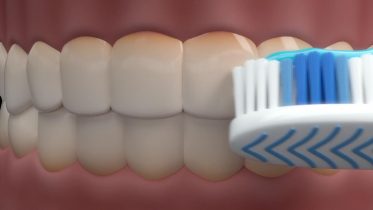
In this trial, all randomized subjects were given the same brushing protocol and received a 30-day supply of toothpaste containing either Plaque HD®, the first toothpaste that identifies plaque so that it can be removed with directed brushing, or an identical non-plaque identifying placebo toothpaste.
Inflammation is intimately involved in the pathogenesis of atherosclerosis and is accurately measured by high sensitivity C-reactive protein (hs-CRP), a sensitive marker for future risks of heart attacks and strokes.
Researchers from Florida Atlantic University’s Schmidt College of Medicine, Marshfield Clinic Research Institute, and the University of Wisconsin School of Medicine and Public Health, collaborated on a randomized trial titled, “Correlation between Oral Health and Systemic Inflammation” (COHESION), to further explore whether Plaque HD®, a plaque identifying toothpaste, reduces hs-CRP.
Results of the randomized pilot trial, published online ahead of print in the American Journal of Medicine, showed that Plaque HD® produced a statistically significant reduction in hs-CRP among those with elevations at baseline.
Plaque HD® is the first toothpaste that identifies plaque so that it can be removed with directed brushing.
In addition, the product’s proprietary formulation contains unique combinations and concentrations of cleaning agents that weaken the core of the plaque structure to help the subject visualize and more effectively remove the plaque.
In this trial, all randomized subjects were given the same brushing protocol and received a 30-day supply of toothpaste containing either Plaque HD® or an identical non-plaque identifying placebo toothpaste.
“Whether this plaque-identifying toothpaste decreases heart attacks or strokes requires a large-scale randomized trial of sufficient size and duration.
If positive, the results of these trials would have significant potential clinical and public health implications.”
Based on these findings, Hennekens and colleagues at FAU and the University of Wisconsin School of Medicine and Public Health are drafting an investigator-initiated research grant proposal to the National Institutes of Health (NIH).
Their proposed randomized trial will test whether Plaque HD® reduces progression of atherosclerosis in the coronary and carotid arteries, for which systemic inflammation is an important precursor.
A report from the United States Centers for Disease Control and Prevention found that 47.2 percent of American adults aged 30 years and older have some form of periodontal disease, a pathological inflammatory condition of the gums and tissues surrounding the teeth.
Those randomized data derived from the landmark Physician’s Health Study, in which Hennekens was the founding principal investigator, and suggested that hs-CRP predicted future heart attacks and strokes.
Co-authors of this randomized pilot trial are Amit Acharya, Ph.D., Marshfield Clinic Research Center and the University of Wisconsin School of Medicine and Public Health; Ingrid Glurich, Ph.D, Marshfield Clinic Research Center; and Scott Hetzel, M.S., KyungMann Kim, Ph.D., Matthew C.